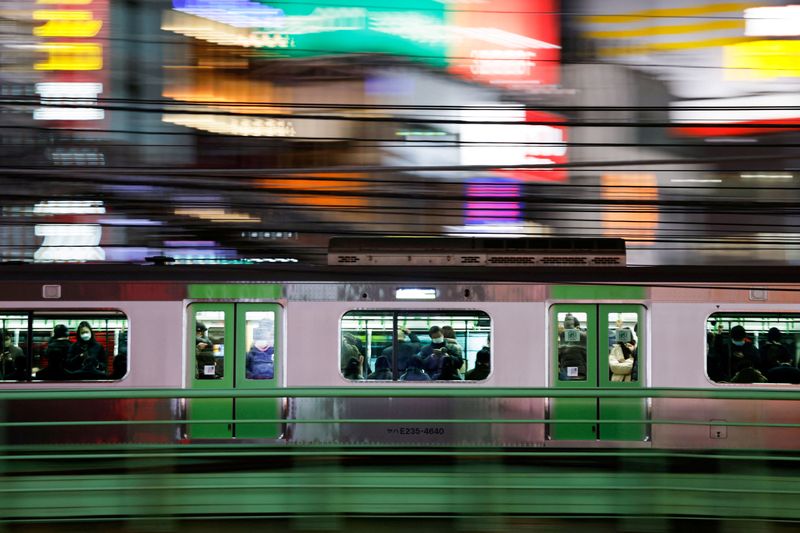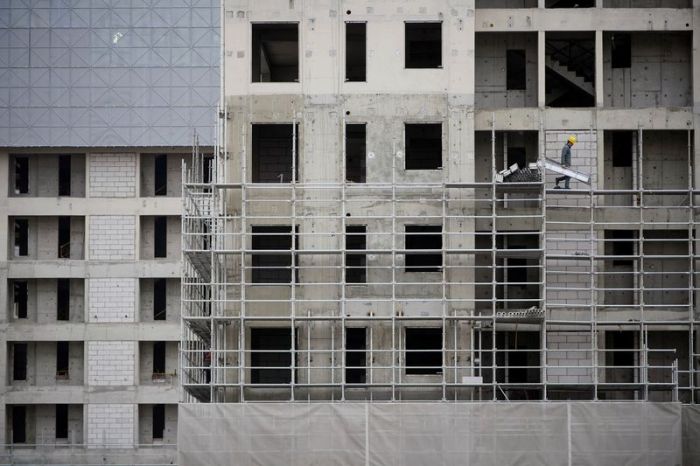By Kiyoshi Takenaka and Satoshi Sugiyama
TOKYO (Reuters) -Japan said on Wednesday it is lifting COVID-19 restrictions imposed on Tokyo and 17 other prefectures as a wave of infections caused by the Omicron variant ebbs.
An Omicron wave led to record infection rates in the capital and throughout Japan in February, the nation’s deadliest https://www.datawrapper.de/_/yydPj wave of the pandemic so far. Tokyo logged 10,221 new coronavirus cases on Wednesday, down 13.6% from a week earlier.
Prime Minister Fumio Kishida told a news conference that quasi-emergency restrictions would be lifted as of March 21 and the country would slowly start returning to normal, since new infections had dropped substantially.
“Exit from the sixth wave of infections has clearly come into sight,” he said.
“From now on, for the time being, it will be a period in which we bring back ordinary lives as much as possible while maintaining the maximum caution and ensuring safety and security.”
After a slow start, the government’s COVID-19 vaccine booster programme has accelerated, with about 71% of Japan’s vulnerable elderly population having received a third dose.
The so-called quasi-state of emergency curbs currently applied in 18 of Japan’s 47 prefectures centred on limiting hours for eateries and other businesses.
Officials in the western prefecture of Osaka had considered requesting an extension of the restrictions due to high hospitalisations, but ultimately decided to let them expire.
The measures have weighed on the economy, particularly the service sector.
“A certain amount of services demand will be unleashed if the curbs are lifted as households have quite a lot of savings now and it coincides with the spring holidays,” said Daiju Aoki, chief Japan economist at UBS SuMi TRUST Wealth Management.
Health experts have said the current Omicron wave is not over, and new variants could emerge at any time. But the restrictions, used repeatedly during the two-year pandemic, have lost their effectiveness on public behaviour, said Tohoku University professor Hitoshi Oshitani.
“We need to have a different strategy to suppress the transmission at this stage,” said Oshitani, a lead advisor on the government’s pandemic response. “It’s still premature to discuss a kind of exit strategy from this virus.”
Kishida had been widely expected to announce a further easing of border restrictions by lifting the daily quota of arrivals, according to media reports, but did not touch on border measures at all in the hour-long news conference.
(Reporting by Satoshi Sugiyama; Additional reporting by Daniel Leussink, Rocky Swift, Elaine Lies and Kiyoshi Takenaka; Editing by Christopher Cushing, Kenneth Maxwell, Kim Coghill, Kirsten Donovan)























